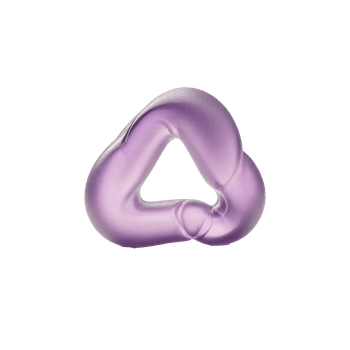What is perimenopause?
Perimenopause is the period before menopause. With perimenopause, it refers to the period before the last menstrual period.
When does perimenopause start and how long does it last?
Perimenopause can start a few years before the last menstruation and the duration can vary from woman to woman. In general, perimenopause usually begins in the 40s, but it can also occur in the 30s. The duration of perimenopause usually ranges from a few years up to a decade.
What are the most common symptoms of perimenopause?
The symptoms of perimenopause can vary between women, but there are some common signs to be aware of, such as:
- irregular periods
- hot flashes
- night sweats
- sleep disorders
- mood swings
- memory problems
- dry mucous membranes
- increased fatigue
- reduced sexual desire
How does perimenopause affect the menstrual cycle and bleeding?
During perimenopause, the menstrual cycle may become irregular. The bleeding may be longer or shorter than normal and fluctuating in intensity. It is also common to experience heavier or lighter bleeding than before. It is important to note that irregular periods do not rule out the possibility of pregnancy, and it is still important to use contraceptive methods if one does not wish to become pregnant.
Hot flashes, night sweats and sleep disorders – common symptoms during perimenopause
Hot flashes and night sweats are common symptoms of perimenopause. They can occur suddenly and cause a feeling of intense heat, followed by cold sweats. Sleep disturbances are also common and may be related to these symptoms. Night sweats can disturb sleep and lead to fatigue and irritability during the day.
Why do you get night sweats during perimenopause?
Night sweats are due to the hormonal changes that occur in the body during this transitional phase. More specifically, night sweats are linked to a decrease in estrogen and an increase in luteinizing hormone (LH) and in the bloodstream.
Estrogen is involved in the body's temperature regulation system and affects the hypothalamus, a part of the brain that regulates body temperature. During perimenopause, the body's estrogen levels become unbalanced, which can cause the hypothalamus to incorrectly interpret the body as overheated. This leads to the body trying to cool itself down by triggering sweating, including night sweats.
Night sweats can be intense and result in soaked clothes and sheets, which can disrupt sleep and affect general well-being. Stress, diet, alcohol, caffeine and certain medications can also worsen night sweats during perimenopause.
How is the body affected by hormonal changes during perimenopause?
During perimenopause, the production of the hormones estrogen and progesterone gradually decreases in the body. These hormonal changes can affect several parts of the body, including the skeleton, cardiovascular system and skin. It can lead to an increased risk of bone fragility (osteoporosis), heart and vascular diseases as well as dryness and loss of elasticity in the skin.
Consult a doctor if you suspect hormonal imbalance during perimenopause
When there are changes in your hormones during perimenopause, a hormonal imbalance occurs in your body. If you experience symptoms of hormonal imbalance and suspect that you may have entered perimenopause, it is good to consult a doctor who can give you individual advice.
Tests that help in the investigation of hormonal imbalance during perimenopause
Tests that measure the levels of, among other things, estrogen, which usually drops during perimenopause, and Follicle-stimulating hormone as well as luteinizing hormone, which usually increases during perimenopause, can be of great help in investigating the symptoms.

























